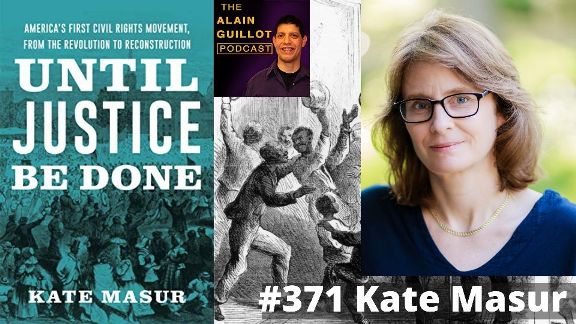About Kate Masur

Kate Masur is an associate professor of History at Northwestern University. She has written extensively on race and politics in the nineteenth-century United States, including in her first book, An Example for All the Land: Emancipation and the Struggle Over Equality in Washington, DC (2010).
With Gregory P. Downs, she co-authored, for the US National Park Service, the National Historic Landmark Theme Study on the Era of Reconstruction (2017) and serves as co-editors of the Journal of the Civil War Era.
Until Justice Be Done: America’s First Civil Rights Movement, from the Revolution to Reconstruction
The half-century before the Civil War was beset with conflict over equality as well as freedom.
Beginning in 1803, many free states enacted laws that discouraged free African Americans from settling within their boundaries and restricted their rights to testify in court, move freely from place to place, work, vote, and attend public school. But over time, African American activists and their white allies, often facing mob violence, courageously built a movement to fight these racist laws.
They countered the states’ insistences that states were merely trying to maintain the domestic peace with the equal-rights promises they found in the Declaration of Independence and the Constitution.

They were pastors, editors, lawyers, politicians, ship captains, and countless ordinary men and women, and they fought in the press, the courts, the state legislatures, and Congress, through petitioning, lobbying, party politics, and elections.
Long stymied by hostile white majorities and unfavourable court decisions, the movement’s ideals became increasingly mainstream in the 1850s, particularly among supporters of the new Republican party.
When Congress began rebuilding the nation after the Civil War, Republicans installed this vision of racial equality in the 1866 Civil Rights Act and the Fourteenth Amendment. These were the landmark achievements of the first civil rights movement.
Support this blog by:
- Subscribing to our YouTube Channel.
- Subscribing to our podcast through your favorite podcast app.
